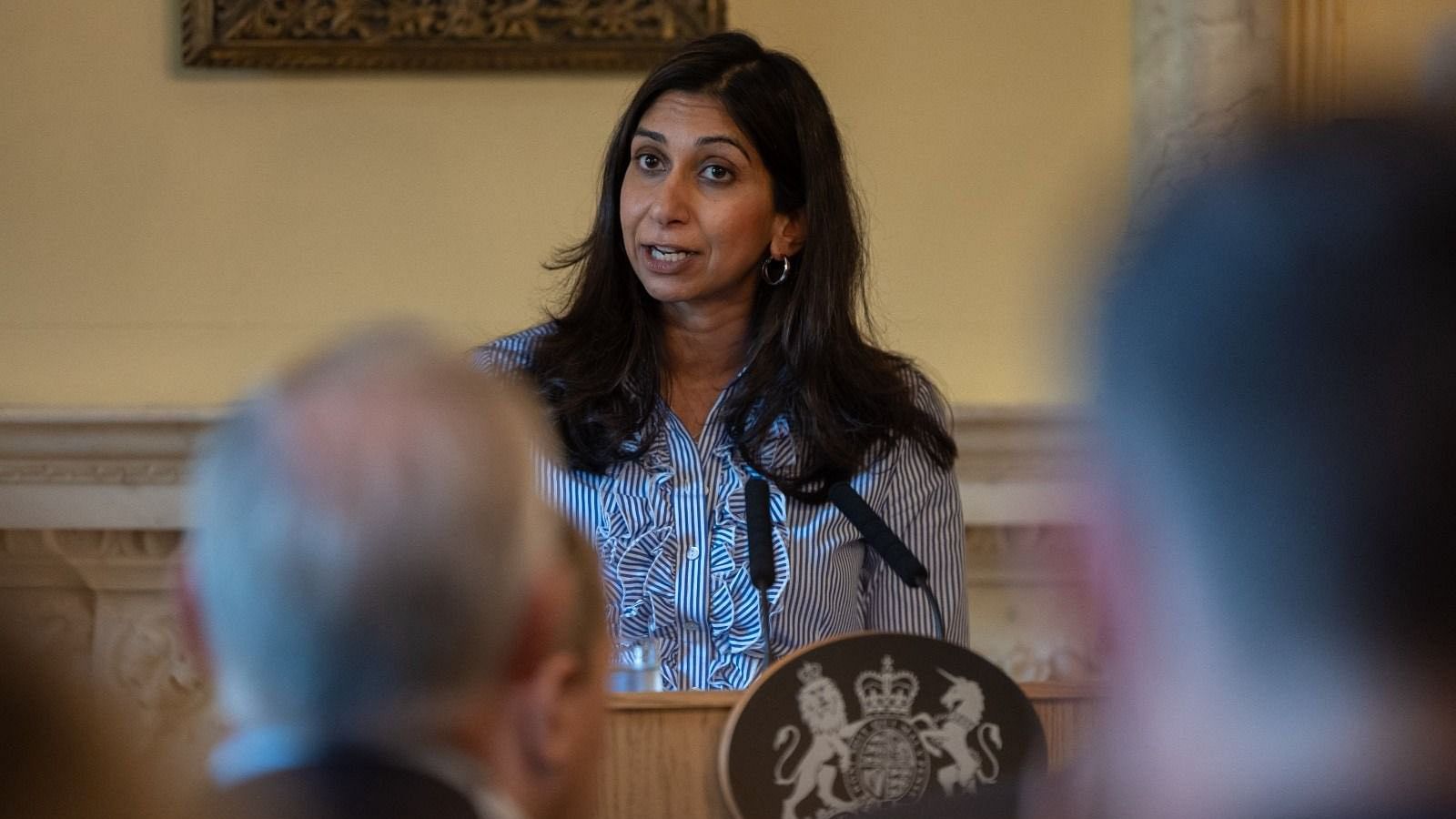
Suella Braverman.
Credit: X /@SuellaBraverman
Britain's interior minister said on Wednesday the country needed to take a pragmatic approach to reaching net zero because it could not "save the planet by bankrupting the British people".
The comment by Suella Braverman comes ahead of a speech by Prime Minister Rishi Sunak this week where he is expected to delay some of the government policies which underpin Britain's long-term plan to reach net zero emissions by 2050.
"We have to adopt a pragmatic approach, a proportionate approach and one that also serves our goals, and we're not going to save the planet by bankrupting the British people," Braverman told Times Radio.
Britain was the first major economy to create a legally binding target to bring greenhouse gas emissions to net zero by 2050 and it was quick to build up its renewable energy capacity in earlier years.
But Sunak's government has recently appeared to waver on some of the measures needed to hit that target as the cost of decarbonising everything from travel to the heating of homes has crystalised during a prolonged cost-of-living crisis.
With a parliamentary election looming next year, Sunak sees scaling back some green policies as a way to win over swing voters - a striking reversal for a country which until recently was a self-proclaimed leader in climate policy.
DELAYED TARGETS?
One area of speculation is that the government could delay the introduction of a ban on the sale of new petrol and diesel cars to 2035 from the current target of 2030.
That would put Britain in line with the European Union which has also adopted a 2035 target, but such a move could dismay the car industry which is looking for certainty as it spends heavily to switch to the production of electric vehicles.
With speculation swirling, Sunak released a statement late on Tuesday saying Britain needed to move towards its net zero goals in a "more proportionate way" and that he would set out an "important long-term decision" this week.
Chris Skidmore, a former energy minister who signed Britain's 2050 net zero commitment into law in 2019 but has since left government and recently led a review into the country's progress towards its targets, said any delay would hit future jobs and investment.
"It will potentially destabilise business confidence that could have created thousands of jobs. Instead they will go elsewhere," he said on messaging platform X, formerly known as Twitter.